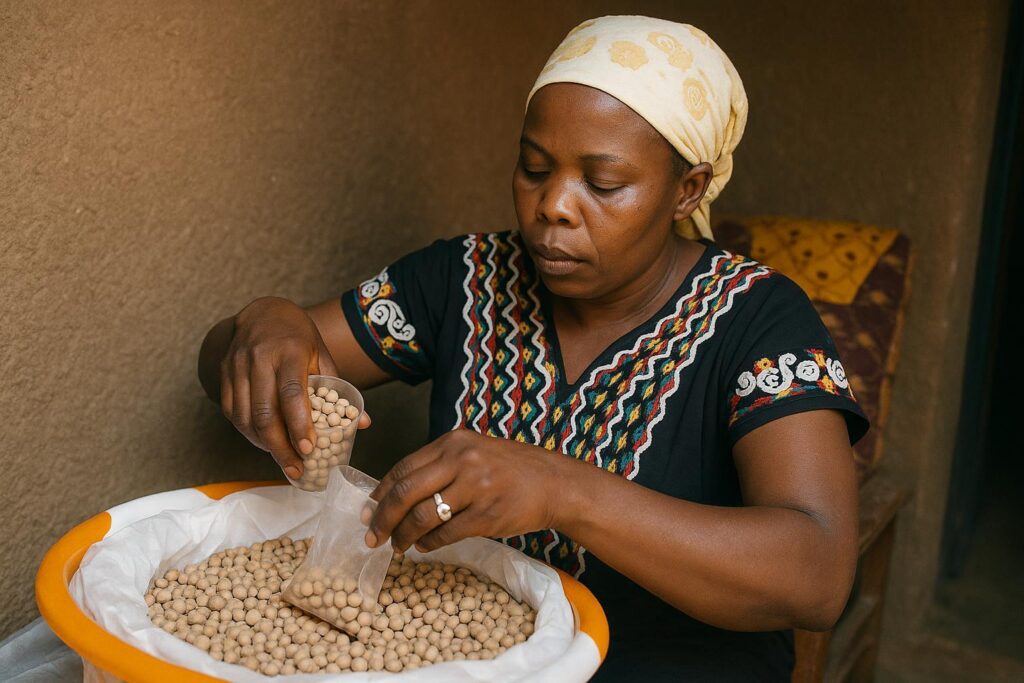Seeds of Ambition in Juba
The bustle of Malakia market hides a quiet revolution led by 27-year-old Betty John Lemi, who sells roasted peanuts and crunchy egusi known locally as Tesali.
Three years ago she began with one cup of seeds; today the profits pay for land in Gumbo, transport, and daily household costs, illustrating micro-enterprise resilience.
Crafting Quality, Preserving Taste
Betty wakes before sunrise to source fresh nuts from nearby farms, roasts them over charcoal, and sifts the kernels by hand to maintain consistency.
For Tesali she follows the traditional recipe without shortcuts, convinced that authenticity, not volume, secures customer loyalty during football matches and evening gatherings.
Counting the Returns
She estimates a fifty-fifty profit margin, a ratio confirmed by her daily ledger, and describes the income as sufficient for sustenance with modest savings.
Economist Samuel Wani notes such margins are impressive for informal retail, adding that disciplined reinvestment can double turnover within a year.
Vision Beyond the Stall
Betty’s next milestone is a bakery and restaurant in Terekaka County, where she intends to introduce affordable bread alongside local dishes.
She also hopes to employ fellow women, arguing that shared opportunity multiplies impact: ‘Independence is freedom, and it starts with small steps,’ she told The Dawn.
Lessons for Aspiring Entrepreneurs
Betty advises beginners to start lean, emphasising patience, discipline and commitment over large capital.
Her narrative, shaped by setbacks in supply and rising transport costs, underscores adaptability—a trait essential for small businesses across Africa’s urban markets.


